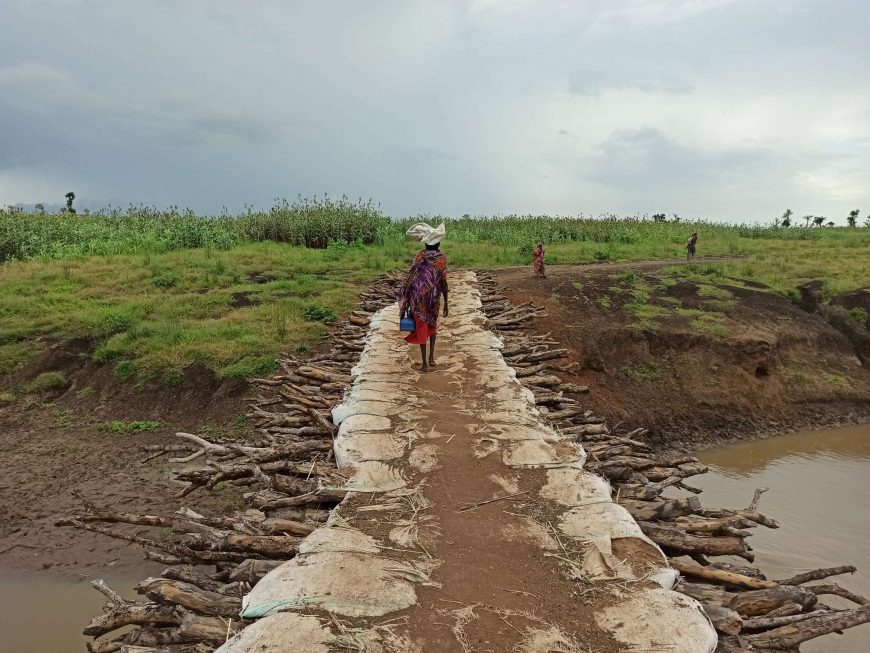Tens of thousands of people looked for safety and crossed the border to the youngest country in the world, South Sudan, since the conflict erupted in Sudanese Blue Nile state in 2011.
The conflict, which has continued for more than nine years, officially ended in 2020 when the warring parties signed a comprehensive peace agreement.
However, over 160,000 refugees wary of a return and remain in four camps in South Sudanese Maban county. To respond to the needs of refugees, ACTED rolled out a program to diversify income-generating activities of families across the camps and surrounding villages.
Sudan : Refugees fleeing conflict in Blue Nile
The prolonged nature of the displacement crisis further exacerbated vulnerabilities of the refugees as they lack access to land and pastures and are unable to find meaningful employment opportunities. This further increases tensions between Sudanese refugees and Mabanese host communities overuse of limited natural resources, and access to services. Crop fields and vegetable gardens line thousands of humble homes made out of mud, wood, and plastic sheets refugees receive when they arrive to Maban camps. The color green is all the eyes can see.
Zainab, a mother of 6, is a Sudanese refugee living in Maban county refugee camp in Upper Nile State, South Sudan. ACTED supported her family in 2017 and 2020. Since then, they have sustained and diversified their small business.
Humanitarian response to diversify refugee’s livelihoods
Zainab lives in Gendrassa camp with her six children. Her husband works in Renk county, Upper Nile state as casual laborer since 2018 and does not support the family financially. Zainab is responsible for all household tasks and finances.

“My family and I used to live in Blue Nile, Sudan. At first, we were receiving plenty of food through food distributions. We used to receive salt, sorghum, oil, cowpeas… In 2016, life became harder when the food distribution rations were reduced.
Luckily for me, I was able to participate in ACTED’s poultry activities with 26 other women. I received 4 chickens and 2 roosters as well as training on how to raise poultry. Soon after, I had 22 chicks. I sold some of them at the market, which cleared all my debts. I saved some of the extra money in the Village Savings and Loans Association and used the rest to buy clothes and shoes for my children.
With the little extra money we made from the poultry, my eldest son started a business buying and selling coffee, which contributes to our household needs. I also started selling sorghum as a business.
In 2020 I participated in another project of ACTED. They gave me 2 goats. I feel happy when I just look at them because I have always wanted goats and I did not think that I would one day come to own them.
“I am very grateful to ACTED for their support. When we first came to Maban, we were relying only on food distributions and we were in debt. Now, my son and I are doing our own businesses selling coffee and sorghum, and I have poultry and goats.”
Throughout 2020, ACTED continued to support refugees and host community members with immediate food aid, in addition to agricultural and livelihoods activities. Besides monthly food distributions in Gendrassa and Kaya camps conducted in close collaboration with WFP, ACTED teams supported livelihood diversification of refugees and host community members.
ACTED has been one of the key humanitarian actors in Maban camps since the beginning of the crisis in 2011.